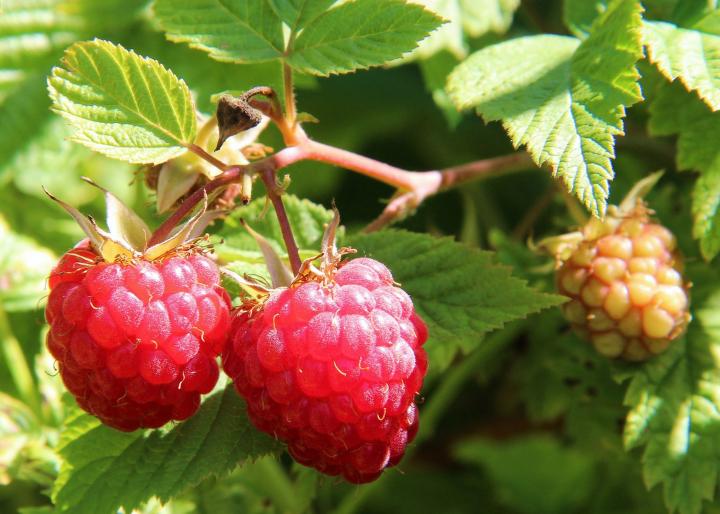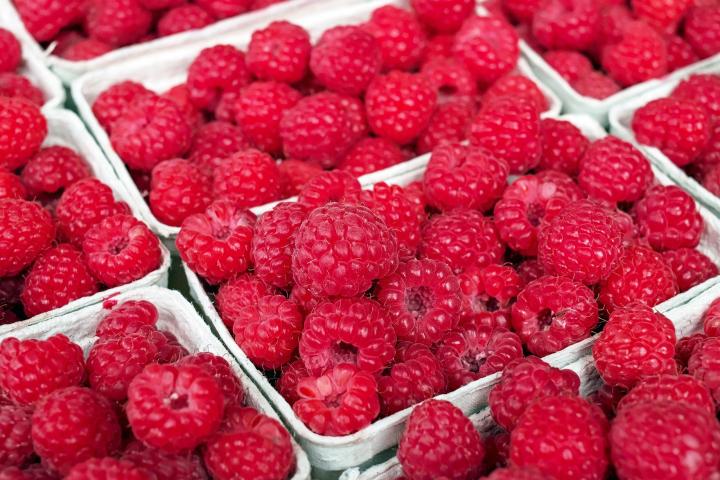
Also receive the Almanac Daily newsletter including gardening tips, weather, astronomical events, and more.
Planting, Growing, and Harvesting Raspberries
Cooking Notes
Fresh raspberries are wonderful in cereals or paired with a dollop of Greek-style yogurt or cream and an indulgent drizzle of maple syrup.
Freeze excess berries to use in smoothies and desserts, or make them into raspberry jam.
If the fruit is to be made into preserves, it should be done with fruit that’s as fresh as possible.
ADVERTISEMENT
I just planted raspberries for the first time last year and got about 6 berries off it. They seem to be in a bush form and not many canes and they have little thorny spikes all up and down them. We have to wear gloves to touch them. The plants are spreading very fast and we have them on a fence line. They seem a little out of control as their are no tall canes to tie up. We are in Texas about 35 miles east of Dallas.
I am trying to propagate more raspberries with the ones I have. Is it possible to cut some of the canes with beginning of buds to root?
What mulch would you suggest for raspberries in a very alkaline soil?
Hi, Buz. We would suggest that you use straw or sawdust to mulch your raspberries.
I live at 7000 ft elevation ion SW Colorado, grow raspberries, and have clayey soil with a pH of 7.5. What mulch would you suggest, to help prevent dying and to correct for the basic nature of soil here?
i planted 15 everbearing type in the spring and they are doing reasonably well. growth has been from 1-3 feet on the plants. even though they will not fruit till next year, should they still be pruned back this winter? thanks
Hi Doug, Thanks for the question. So, it depends on if you want your everbearing raspberry bushes to produce two crops each year (summer and fall) or just one (fall). In order to get that smaller summer crop next year before the bountiful one in the fall, the fruit will grow on the bottom of this year’s canes. If that is the case, leave this year’s growth to see what raspberries will appear early in next year’s growing season. You can then prune those canes out after harvest. If you just want a single fall crop next fall, the fruit will grow on next year’s cane growth, so you can prune out this year’s canes between fall and late winter. Hope this helps!
How long have they been wondering?? :-) "Not only are raspberries perfect for picking and eating straight off the stem, but they’re also wondering in jams, pies and tarts, or smoothies and drinks. "
Ha ha ha! 😁
Ha, ha, ha!












